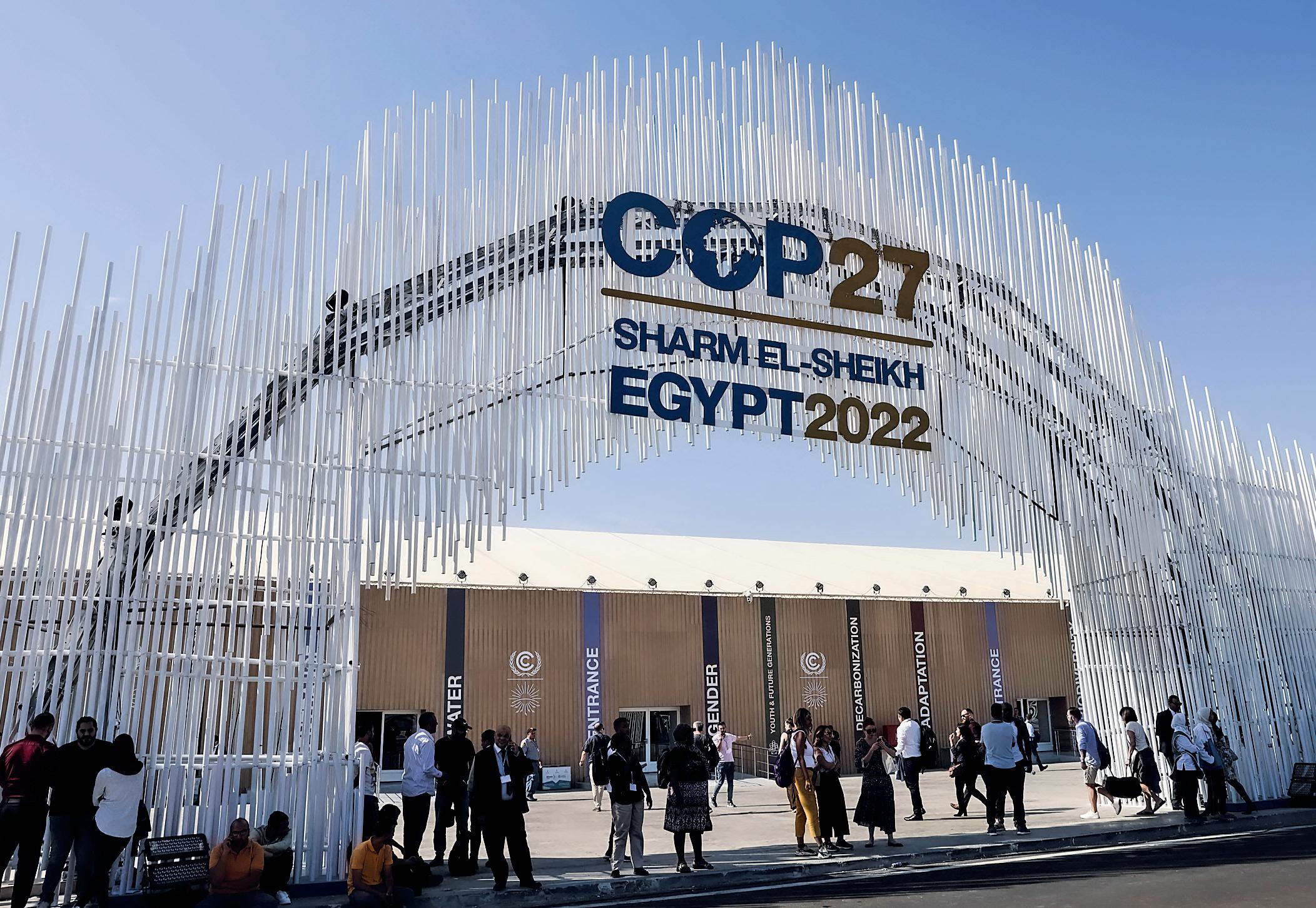
Cop stands for conference of the parties under the UNFCCC. Meetings have swung between fractious and soporific with moments of drama and the occasional triumph (the 2015 Paris agreement) and disaster (Copenhagen in 2009). This year promises to be a difficult follow-up to Cop26 in Glasgow.
When does it finish? The conference is being hosted by the Egyptian government in Sharm el-Sheikh. The talks are scheduled to end at 6pm on Friday 18 November but they may extend by a day or two.
Why do we need a Cop-don't we already have the Paris agreement? Yes - under the landmark Paris agreement, signed in 2015, countries committed to holding global temperature rises to "well below"
2C above pre-industrial levels, while "pursuing efforts" to limit heating to 1.5C. Those goals are legally binding and enshrined in the treaty.
However, to meet those goals, countries also agreed on nonbinding national targets to cut - or in the case of developing countries, to curb - the growth of greenhouse gas emissions in the near term, by 2030 in most cases. Those targets - known as nationally determined contributions (NDCs) - were inadequate and if fulfilled would result in 3C or more of warming, which would be disastrous.
Everyone knew at Paris that the NDCs were inadequate, so the French built into the accord a "ratchet mechanism" by which countries would have to return to the table every five years with fresh commitments. Those five years ended on 31 December 2020, and at Cop26 in November 2021 countries set out new targets.
Didn't this get sorted out at Cop26?
At Cop26, countries agreed to focus on the tougher 1.5C aspirational goal of the Paris agreement, acknowledging that the 2C target would allow massive devastation. Many countries updated their NDCS, and countries responsible for about three-quarters of global greenhouse gas emissions set out long-term targets to reach net zero carbon by about mid-century.
Esta historia es de la edición November 11, 2022 de The Guardian Weekly.
Comience su prueba gratuita de Magzter GOLD de 7 días para acceder a miles de historias premium seleccionadas y a más de 9,000 revistas y periódicos.
Ya eres suscriptor ? Conectar
Esta historia es de la edición November 11, 2022 de The Guardian Weekly.
Comience su prueba gratuita de Magzter GOLD de 7 días para acceder a miles de historias premium seleccionadas y a más de 9,000 revistas y periódicos.
Ya eres suscriptor? Conectar

The Saudi football World Cup is an act of violence and disdain
Well, that's that then. In the event there were only two notes of jeopardy around Fifa's extraordinary virtual congress last week to announce the winning mono-bids, the vote without a vote, for the right to host the 2030 and 2034 football World Cups.

AI has made the move into video and it's worryingly plausible
I recently had the opportunity to see a demo of Sora, OpenAI's video generation tool, which was released in the US last Monday, and it was so impressive it made me worried for the future.

With tyrant Assad ousted, Syrians deserve support and hope
Last week, time collapsed. Bashar al-Assad's fall recalled scenes across the region from the start of the Arab spring almost 14 years ago. Suddenly history felt vivid, its memories sharpened. In fact it no longer felt like history.

TV
The Guardian Weekly team reveals our small-screen picks of the year, from the underground vaults of post-apocalyptic Fallout to the mile-high escapism of Rivals

Albums
Murky love stories, nostalgic pop and an in-your-face masterpiece captured our critics' ears in 2024

Film
Visual language, sound, light and rhythm are to the fore in the best movies of the year

Hidden delights Our 24 travel finds of 2024
Guardian travel writers share their discoveries of the year, from Læsø to Lazio

'It's really a disaster' The fight to save lives as gang war consumes capital
Dr James Gana stepped out on to the balcony of his hospital overlooking a city under siege. \"There's a sensation of 'What's next?'. Desperation is definitely present,\" the Médecins Sans Frontières (MSF) medic said, as he stared down at one of scores of camps for displaced Haitians in their country's violence-plagued capital.

Trailblazers The inspiring people we met around the world this year
From an exuberant mountaineer to a woman defiantly facing the guns of war, here are some of the brave individuals who gave us hope in a tumultuous 2024

Votes of confidence
From India to Venezuela and Senegal to the US, more people voted this year than ever before, with over 80 elections across the world. With rising authoritarianism and citizen-led resistance revealing its vulnerabilities and resilience in the face of unprecedented challenges, has democracy reached its breaking or turning point?